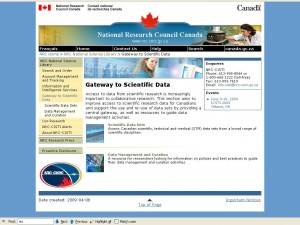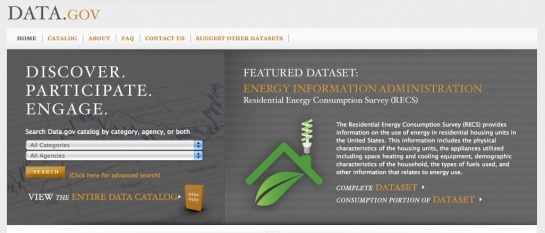National Research Council Canada Institute for Scientific and Technical Information, NRC-CISTI launches Gateway to Scientific Data.
This is very exciting news. The Gateway includes data, data management and curation content.
Scientific data generated during the research process can be an important resource for researchers, but only if it is accessible and usable. Thanks to a new initiative of the NRC Canada Institute for Scientific and Technical Information (NRC-CISTI) researchers now have a central gateway for easier access to Canadian scientific, technical and medical (STM) data sets and other important data repositories.
The Gateway to Scientific Data will help ensure that the valuable data generated by Canadian researchers [are] more easily accessible so that it can be re-used for other research endeavours. With the ability to access and use data from a multitude of sources, researchers will be better positioned to turn research into discoveries and innovations. …
Along with links to data sets, the new Gateway provides links to selected policies and best practices guiding data management and curation activities in Canada. It also includes links to selected journals and upcoming conferences and meetings.
The Gateway to Scientific Data is part of NRC-CISTI’s contribution to a broader national initiative undertaken by the Research Data Strategy (RDS) Working Group to address the challenges and issues surrounding the access and preservation of data arising from Canadian research. …
Via: Open Access News


Comments on Posts